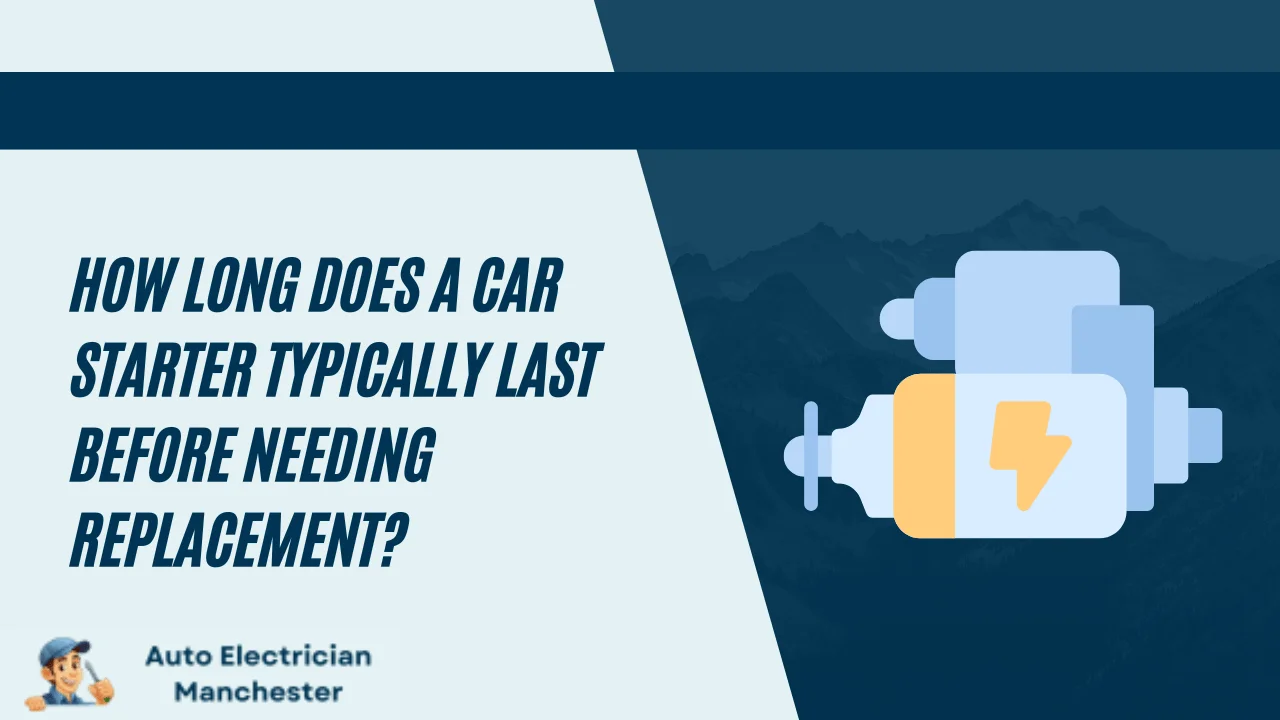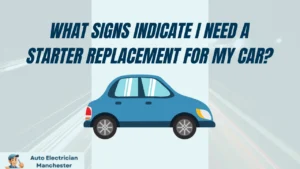
Car starters are the unsung heroes of the automotive world. With a simple twist of the key, they bring our vehicles to life, but how long do they faithfully serve us before needing a replacement? This article dives into the factors affecting a car starter’s lifespan, empowering you to anticipate and address potential issues.
Understanding Car Starters
A car starter is an electric motor responsible for cranking the engine. It works in tandem with the battery, ignition switch, and flywheel to initiate the combustion process. When you turn the key, the starter engages the flywheel, rotating the engine at a speed sufficient for combustion to occur. This seemingly simple process involves significant electrical power, and over time, the starter experiences wear and tear.
Factors Affecting Car Starter Lifespan
Predicting a car starter’s lifespan isn’t an exact science. Several factors influence how long it functions optimally:
Start Frequency: Frequent starting puts more strain on the starter. Short, numerous trips throughout the day tax the starter more than longer commutes.
Environmental Conditions: Extreme heat is a starter’s enemy. It degrades internal components, shortening its lifespan. Conversely, moderate climates with consistent temperatures promote longer starter life.
Driving Habits: Holding the key in the “start” position for extended periods can overheat the starter motor, accelerating wear and tear.
While mileage is often used as a benchmark, it’s not entirely reliable. Estimates suggest a car starter’s lifespan can range anywhere between 30,000 and a remarkable 200,000 miles.
A More Reliable Indicato: Number of Starts
A more dependable indicator of a starter’s lifespan might be the number of starts it can endure before succumbing to wear and tear. Industry estimates suggest a well-maintained starter can handle approximately 80,000 starts. Considering most vehicles only require a couple of starts per day, this translates to a potentially long lifespan.
However, this assumes ideal conditions. Factors like extreme temperatures, frequent starting, and improper driving habits can significantly reduce the number of starts a car starter can handle.
Warning Signs of a Failing Starter
Regardless of mileage, be attentive to your car’s behavior. Here are some warning signs that your starter might be nearing the end of its lifespan:
Clicking Sounds: A clicking noise during ignition attempts is a common symptom of a failing starter. It indicates the starter solenoid is engaging, but the motor itself isn’t functioning properly.
Slow Cranking: If your engine cranks sluggishly before starting, it could be a sign of a weak starter motor struggling to turn the engine.
Complete Failure to Start: The most obvious sign? Your car simply won’t start at all. This could be due to a failing starter, but it’s crucial to have a mechanic diagnose the exact cause.
Extending Your Starter’s Lifespan
While some factors influencing a starter’s lifespan are beyond our control, there are ways to promote its longevity:
Avoid Short Trips: Whenever possible, combine errands into longer journeys to reduce the number of starts your car experiences.
Parking in Moderate Climates: If possible, park your car in a garage or shaded area during extreme heat to minimize heat-related stress on the starter.
Don’t Abuse the Starter: Avoid holding the key in the “start” position for extended periods. If the engine doesn’t turn over after a few seconds, stop and try again after a brief pause.
Internal Components and Warning Signs
Understanding the inner workings of a car starter can provide valuable insight into its potential weaknesses and how to identify warning signs of trouble.
The Solenoid: This electromagnetic switch acts as the gatekeeper between the battery and the starter motor. When you turn the key, the solenoid activates, sending a surge of current to the starter motor. A failing solenoid often produces a clicking sound but fails to engage the starter motor, preventing the engine from cranking.
The Starter Motor: The heart of the starter system, the starter motor is a powerful electric motor that converts electrical energy from the battery into mechanical energy. It’s comprised of an armature, commutator, and brushes. These components work together to spin the engine flywheel, initiating the combustion process. Over time, wear and tear on these parts can reduce the starter motor’s efficiency, leading to slow cranking or complete failure.
The Drive Pinion: This gear-shaped component on the starter motor engages the teeth on the engine’s flywheel. When the starter motor spins, it forces the drive pinion to mesh with the flywheel, rotating the engine. Worn or damaged drive pinions can cause grinding noises during startup or prevent the engine from cranking altogether.
Taking Care of Your Car Starter
Just like any other car component, preventive maintenance is key to extending the life of your starter. Here are some proactive steps you can take:
Regular Battery Maintenance: A weak battery puts extra strain on the starter motor as it struggles to overcome the resistance. Ensure your battery terminals are clean and free of corrosion. Regularly check your battery health and replace it if necessary.
Oil Changes: Thick, old engine oil increases the resistance the starter motor needs to overcome when cranking the engine. Maintain your car’s recommended oil change intervals to ensure optimal lubrication and reduce stress on the starter.
Listen to Your Car: Be mindful of any unusual sounds during startup, such as clicking, grinding, or slow cranking. These can be early warning signs of a failing starter and prompt you to address the issue before it leaves you stranded.
Conclusion
While predicting a car starter’s lifespan precisely is challenging, understanding the factors that influence it empowers you to make informed decisions. By adopting preventive maintenance practices and being attentive to warning signs, you can ensure your car starter faithfully serves you for miles to come. If you suspect a starter issue, don’t hesitate to consult a qualified mechanic for diagnosis and repair. They can assess the situation and recommend the most appropriate course of action, keeping your car running smoothly and reliably.
FAQ
Is it better to replace the starter before it fails?
While replacing a starter pre-emptively might seem like a good idea, it’s generally not recommended. Starters are relatively durable components, and replacing a functioning one is an unnecessary expense. It’s best to address the issue when you experience warning signs of a failing starter.

David Mack is a seasoned writer with a passion for the auto electrician niche. With years of hands-on experience and a knack for demystifying complex topics, David brings practical insights to his readers. Whether you’re a professional or a car enthusiast, his engaging articles offer valuable tips and trends in auto electrical systems.
